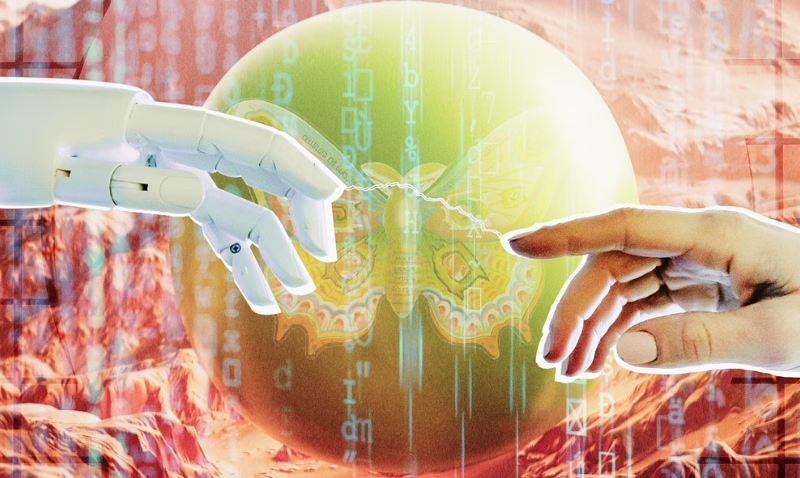Development brings new demands and raises ethical questions.

Artificial intelligence (AI) has long since become part of the everyday work of Austrian companies and is largely viewed by members of the sustainability network respACT as an opportunity for sustainable transformation. This is demonstrated by a recent study conducted by respACT together with Marketagent and compared with the APA-Comm Spring Study 2025. The comparison clearly shows that the sustainability industry is particularly open to the responsible use of new technologies.
The key results at a glance
- 83.8% consider AI and sustainability to be compatible
- 88.8% see AI as an opportunity for their industry
- 72.5% of respondents already report concrete changes in their daily work routine
- 66.7% expect noticeable time savings
- 47.4% see potential for cost reduction
“The results clearly show that the respACT community is open to technological innovations as long as they are used responsibly and in accordance with sustainable principles,” emphasizes Daniela Knieling, Managing Director of respACT.
Sustainability industry as a pioneer
A comparison with the APA Comm Spring Study 2025 shows that respACT member companies view artificial intelligence more positively than other industries. While media professionals in the APA Comm study are rather reserved in their assessment, companies in the sustainability sector – as well as communications experts – are already reporting noticeable efficiency gains, innovation boosts, and new forms of collaboration.
Despite the optimism, however, a critical view remains, as 60.0% of respondents anticipate job cuts in certain areas. At the same time, however, 95.0% of respondents do not see their own jobs at risk. Instead of job cuts, most expect a reallocation of tasks and new skills requirements.
New requirements and ethical questions
The study makes it clear that AI not only accelerates processes, but also changes working practices and raises new ethical questions. The results show:
- 62.5% of respondents experience changes in working practices
- 61.3% report increased efficiency
- 60 % see ethical challenges
- 43.8 % feel more room for creativity
"AI is not an end in itself. It must be designed to serve people, not the other way around," says Knieling. "Especially in the area of sustainability, it is crucial to combine technological innovation with social responsibility."
csrTAG 2025: Digitalization & AI in the focus of the discussion
The study results show that AI can be a powerful lever for sustainable development – provided its use is conscious, responsible, and with appropriate expertise. This very topic is one of the focal points of this year's csrTAG, which will take place on September 17 at the UniCredit Center in Vienna.
"Digitalization is not an end in itself. It must be based on a values-based design to drive transformation in line with the SDGs," says Knieling. "csrTAG offers the ideal platform to discuss these issues together with companies, experts, and the next generation and to develop concrete solutions."
About the study
The online survey was conducted by Marketagent in June/July 2025 among 80 member companies of the respACT network. It includes 17 questions on the use, perception, and impact of AI in everyday work. The results were compared with the APA Comm Spring 2025 study to highlight differences between the sustainability industry and other professional groups—particularly media and communications.
